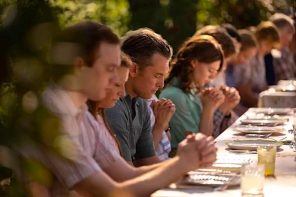I’ve been watching the positive reviews roll in for Brady Udall’s new novel The Lonely Polygamist, which may be the most important work of Mormon literature since Terry Tempest Williams’s Refuge (1992) and the most important Mormon novel since Levi Peterson’s The Backslider (1986).
Back at BYU, we always knew Brady was the spectacularly talented one—another Udall of great destiny. And we are pleased and not surprised to see the national press praise The Lonely Polygamist as a “masterfully crafted book” of great “humor” and “tenderness” and Publisher’s Weekly to declare it “a serious contender for Great American Novel status.” But nary a review passes without an otherwise cosmopolitan book reviewer feeling she or he must perform a moment of public disdain or distaste for polygamy. The most glaring example: last Sunday’s New York Times Book Review, wherein reviewer Eric Weinberger feels obliged to denounce polygamy as a “culturally alien and abhorrent practice” and concludes by wishing that Brady had shown “a little less respect” for his protagonist Golden Richards and his four wives.
Huh?
I wrote Brady and asked him for his reaction:
[Weinberger] thinks that I’m not clear-eyed or critical enough about the abuse he no doubt knows all about from news reports and television shows [about Warren Jeffs, the FLDS, and the YFZ Ranch in Texas]. There are many things I could say about all this, but I’ll say simply that often the strong reaction people have is not with polygamy per se, but with how little separation there is between polygamy and the way we live now. The liberal-minded among us believe that adults should be able to create the family structure of their choice, but so often, because polygamy arises from a deeply patriarchal system, those same liberal-minded folks will condemn it out of hand. The more conservative among us are no doubt a little unnerved by how little difference there is between the patriarchal structures of polygamy and those of the larger culture as it is now. So I guess I’m saying that much of the strong reaction arises from the beautiful contradiction polygamy provides.
Thank you, Brady. That sounds about right.
And could it be that polygamy among consenting adults is simply another form of non-heteronormative sexuality? An ultraorthodox queer lifestyle criminalized in a fit of Orientalism by the U. S. Supreme Court in the 1879 Reynolds decision which declared it an “odious,” “Asiatic” practice?
Discuss.




